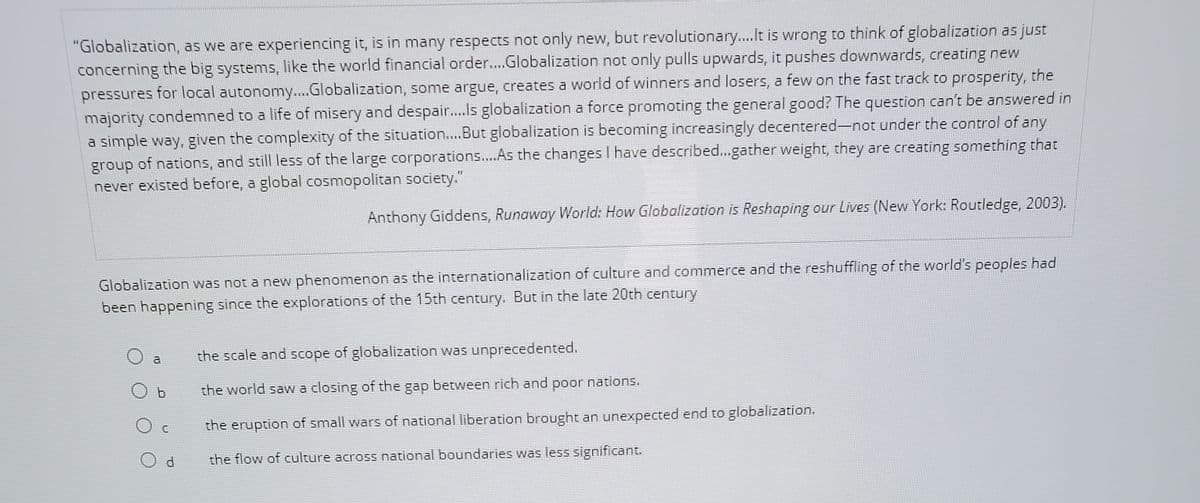Globalization was not a new phenomenon as the internationalization of culture and commerce and the reshuffling of the world's peoples had been happening since the explorations of the 15th century. But in the late 20th century O a the scale and scope of globalization was unprecedented. O b the world saw a closing of the gap between rich and poor nations. the eruption of small wars of national liberation brought an unexpected end to globalization. the flow of culture across national boundaries was less significant.
Globalization was not a new phenomenon as the internationalization of culture and commerce and the reshuffling of the world's peoples had been happening since the explorations of the 15th century. But in the late 20th century O a the scale and scope of globalization was unprecedented. O b the world saw a closing of the gap between rich and poor nations. the eruption of small wars of national liberation brought an unexpected end to globalization. the flow of culture across national boundaries was less significant.
Related questions
Question

Transcribed Image Text:"Globalization, as we are experiencing it, is in many respects not only new, but revolutionary..It is wrong to think of globalization as just
concerning the big systems, like the world financial order...Globalization not only pulls upwards, it pushes downwards, creating new
pressures for local autonomy....Globalization, some argue, creates a world of winners and losers, a few on the fast track to prosperity, the
majority condemned to a life of misery and despair..Is globalization a force promoting the general good? The question can't be answered in
a simple way, given the complexity of the situation....But globalization is becoming increasingly decentered-not under the control of any
group of nations, and still less of the large corporations..As the changes I have described...gather weight, they are creating something that
never existed before, a global cosmopolitan society."
Anthony Giddens, Runawoy World: How Globalization is Reshaping our Lives (New York: Routledge, 2003).
Globalization was not a new phenomenon as the internationalization of culture and commerce and the reshuffling of the world's peoples had
been happening since the explorations of the 15th century. But in the late 20th century
the scale and scope of globalization was unprecedented.
al
the world saw a closing of the
gap
between rich and poor nations.
the eruption of small wars of national liberation brought an unexpected end to globalization.
the flow of culture across national boundaries was less significant.
Expert Solution
This question has been solved!
Explore an expertly crafted, step-by-step solution for a thorough understanding of key concepts.
This is a popular solution!
Trending now
This is a popular solution!
Step by step
Solved in 2 steps
